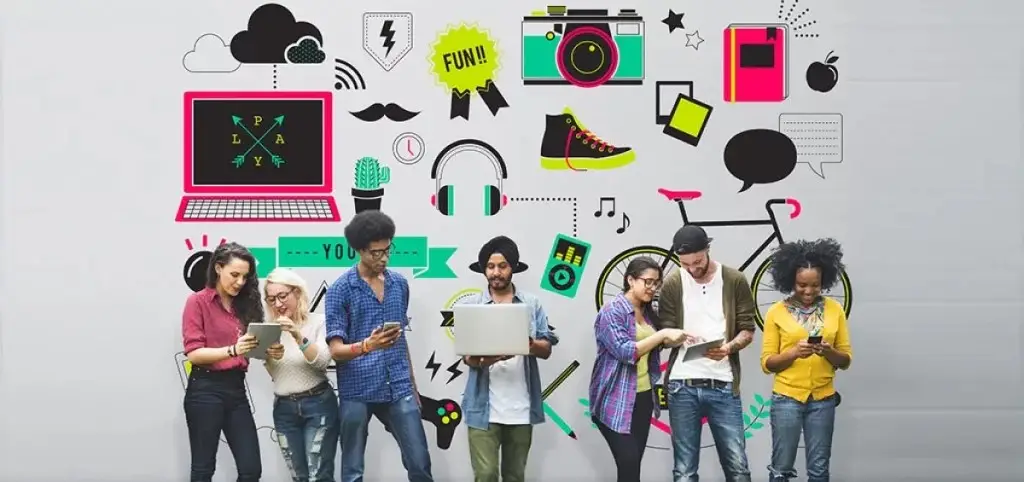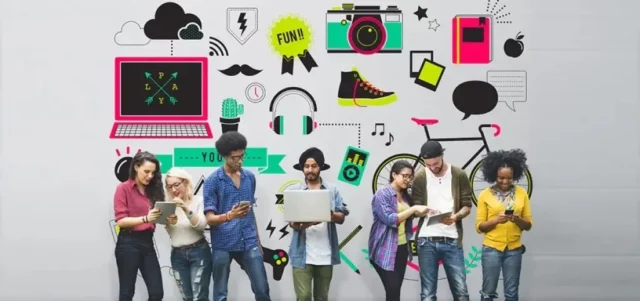As we stride further into 2025, the Africa of tomorrow is being shaped not by empty promises, but by real and impactful Education Technology. These innovations are more than tools—they are catalysts transforming classrooms, empowering teachers, and unlocking opportunities for millions of learners across the continent.
Table of Contents

1. Localised, Multilingual Learning Platforms
Africa’s linguistic richness has long been a barrier to inclusive learning. Yet, change is afoot. Platforms now deliver Education Technology content in Swahili, Hausa, Amharic, Zulu, and more alongside English and French. This localisation isn’t just translation—it’s a cultural handshake, affirming learners’ identities while ensuring comprehension and connection. Across Nigeria, Ghana, East Africa, and beyond, this trend is turning smartphones into classrooms where no one is left out.
2. AI That Empowers, Not Replaces, Teachers
AI in education has sparked much discussion, but 2025 is showing us its true promise. In Nigeria, AI tools like Curri AI assist teachers with data-rich insights—spotting where pupils struggle, streamlining grading, and freeing educators to rekindle their interpersonal spark. Across Africa at large, AI fosters personalised learning paths, addressing wide class sizes and giving students real-time support. In short, Education Technology is letting teachers teach and learners excel, together.
3. Mobile-First Learning Takes Centre Stage
Smartphone usage is booming—projected to exceed 600 million users by 2025—and Africa is capitalising on that growth. Mobile-first EdTech platforms, from micro-learning apps to SMS-based courses, are making education affordable and accessible—even in the most remote villages. In Kenya, innovative partnerships between telecom operators like Safaricom and startups are peeling away data cost barriers, ensuring content reaches even underserved communities. Here, Education Technology isn’t futuristic—it’s in the palm of every student’s hand.
4. The Rise of Immersive and Gamified Learning
Learning no longer needs to be dreary. Gamification—with badges, points, and challenges—is making lessons feel like play, while deepening engagement and retention. Add Augmented Reality (AR) and Virtual Reality (VR) to the mix, and classrooms suddenly erupt with life. Students can walk through historical sites virtually or conduct science experiments digitally—bridging theory with immersive experience. Combined, these immersive approaches are redefining what Education Technology can be, turning abstraction into interaction.
5. Digital Libraries & Offline Learning Tools
Access to textbooks and libraries remains patchy in much of Africa. Enter digital libraries and offline tools like SolarSPELL—a solar-powered, offline digital library delivering curated educational resources to places without internet access. In South Africa, STEMulator provides virtual STEM resources aligned to the curriculum, available both online and via USB for rural schools. These innovations embody Education Technology with impact: bridging gaps, conserving costs, and delivering knowledge where infrastructure is weak.
6. AI-Powered Tutors & Teaching Assistants
From Ghana to Nigeria, real-world deployments of bilingual, AI teaching assistants are underway. Kwame for Science offers science help, past WAEC (WASSCE) questions, and topic-based filtering for West African students, achieving a remarkable 87.2% top-3 answer accuracy during deployment across 32 countries and with 750 users. More broadly, platforms like SuaCode, AutoGrad, and Brilla AI are expanding coding and STEM support across the continent. This is Education Technology reimagined: scalable, accurate, and in tune with local needs.
7. Secure, Trustworthy Credentialing via Blockchain
Academic fraud remains a persistent issue, but blockchain is stepping in. Pilot efforts like the African Blockchain Education Initiative are issuing tamper-proof digital diplomas that simplify verification and boost employability across borders. By the time accreditation or job applications roll in, graduates need no longer carry stacks of papers—just a secure digital credential recognised worldwide. This is Education Technology meeting authenticity head-on.

8. Teacher Upskilling & Professional Development Online
Excellent schools start with well-equipped teachers—and EdTech is helping Nigeria and many African countries transform teacher training. From online professional platforms to virtual communities, educators are learning 21st-century methods, coping strategies, and pedagogical innovation—often across borders. These capacity-building efforts reaffirm that our systemic future lies in empowered teachers supported by thoughtful Education Technology.
9. Social Enterprises Bringing Hardware & AI Together
Technology is only useful if it is available. Camara Education repurposes IT hardware and sets up Digital Learning Centres in schools across Ethiopia, Kenya, Tanzania, Zambia—and now integrates AI learning tools in 2025 to boost interactivity. Closer home in Nigeria, Afrilearn provides animated video lessons, exam preparation, coding modules and a Learn-and-Earn model, unfolding quality content even amid infrastructural challenges. These are heart-driven, ground-level applications of Education Technology that blend resourcefulness with innovation.
10. Kenya-to-Beyond: Game-Based Learning & Esports
In a refreshing twist, Esports and game-based learning are being pioneered in schools. GameClass has teamed with NASEF Africa to bring video-game-based education into 200 schools, aiming to reach thousands of learners by 2025, proving that play can be both pedagogical and professional. It’s proof that Education Technology also honours entertainment and imagination, harnessing them for learning and collaboration.
11. Funding, FinTech & African-Centred EdTech Ecosystem
Investment is finally catching up to the promise of African EdTech. While global venture capital to EdTech was small, projections see local African venture capital rising significantly, potentially reaching over 10% of global EdTech investment by 2045. Moreover, investments in EdTech grew from US$3 billion in 2021 to US$57 billion in 2023—an astounding 1,800% jump—highlighting confidence in the continent’s potential. As capital flows into schools, startups, and ecosystems, Education Technology benefits from homegrown design, context, and sustainability.
12. Digital Literacy, Collaborations & STEM Policy
Policy shifts are powering change. Governments and partners are digitising curricula, focusing on digital literacy, and reforming assessments to align with critical thinking and AI skills. Digital Academies in Africa emphasise collaborative learning environments—online discussion groups, virtual study pods, peer-to-peer networks—all promoting community-based learning. This climate is fertile ground: Education Technology is not just about gadgets, but about building a digitally literate, collaborative, and STEM-ready generation.

Challenges & Realism Check
Yet, as much as we champion these trends, real obstacles remain:
- Infrastructure gaps in connectivity and electricity still hamper many schools, especially in rural areas.
- Teacher readiness is uneven: many teachers need training, confidence, and resources to adopt these technologies fully.
- Cost and affordability remain a barrier, with devices and software still out of reach for many families and schools.
- Ethical concerns—from data privacy to algorithmic bias—must be navigated carefully if AI is to serve, not harm.






































